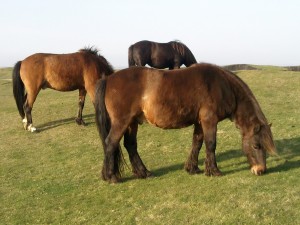Buying Horses – 10 Rules & Tips You Need To Know
 Today Laura Jane Thompson shares her tips for buying horses and ponies in ’10 Rules For Buying Horses’. Buying a new horse is always a big, and can be stressfull, task, but if you know exactly what you want and what to look out for, the process can be made a lot easier.
Today Laura Jane Thompson shares her tips for buying horses and ponies in ’10 Rules For Buying Horses’. Buying a new horse is always a big, and can be stressfull, task, but if you know exactly what you want and what to look out for, the process can be made a lot easier.
10 Rules For Buying Horses
By Laura Jane Thompson
Buying a new horse is never an easy task, partly because there are always myriad options from which to choose. You might have narrowed your specifics considerably, but there will always be more horses on the market than you have time to see.
Strategy is important, whether you’re buying horses for competition or pleasure. You’ll have different criteria if you’re looking for a child versus an adult, just like the experience and abilities of the rider will make an enormous difference. So what is the right strategy for buying horses?
1- Never Buy the First Horse You See
I know all about love at first sight. It happened to me when I was a senior in high school, and the horse’s name was Bella. She was the most beautiful thing I’d ever seen: perfect combination, wide-set eyes, a gently-sloping forehead. Riding her was like sitting on a cloud, and I knew I had to have her.
It worked out all right with Bella, but this isn’t always the case. If you’re in the market for buying horses, make sure you see as many of them as possible. You can always go back and see if that first horse is still available, and most horses don’t leave the market that quickly anyway.
I always tell my clients to look at ten horses or more before making a decision. This will give you an idea for what the market has to offer and will delay your decision until you can think it over. You might discover that the horse you really want has some obscure problem that you won’t want to deal with.
2- Shop Locally
If you’re buying horses that currently live halfway across the world, you have quite a bit of traveling in your future. It is never a good idea to buy horses sight-unseen, and most of us don’t have time to go traipsing from city to city in search of the perfect animal.
Unless you have very specific criteria for an Olympic-level horse, you can find a suitable animal practically in your own backyard. Depending on where you live, you might be able to limit your search to a 100-mile radius with no problem.
You’ll also find that buying horses locally means there is less chance of running into a scam. People are far more wary of ripping off customers who live right around the corner.
3- Order a Drug Test
You might be the most honest person in the world, but everyone is not so scrupulous. Some horse breeders will drug their horses before showing them so they are calm and pliable. This means a serious shock when you take the horse home and wind up in the dirt. Run a drug test and have the horse vetted by a qualified veterinarian before you write that check.
Buying horses, as mentioned above, can be a nasty business. If you really want to protect yourself, insist on a trial run with the horse before your purchase is solidified. Pay for the horse and take him home for a week with the option to sell him back if he doesn’t work out. This gives you a chance to try him out on your home turf with no pressure.
This is particularly useful when buying school horses for a lesson program. Since school horses must possess a very specific set of qualities, a trial run reduces the chances of buying a dud. Just make sure you are clear in the paperwork that you have the option for a full refund if the horse isn’t what you thought.
5- Grow Slowly
If you run a horse business, you’ll be buying horses left and right. Just don’t get too far ahead of yourself. Your equine inventory is your biggest asset as a horse business owner. Whether you’re breeding horses or teaching lessons, a great portion of your income rests in the hands of those animals. Making quick purchases all at once is a mistake.
The same is true if you are a serious competitor hoping to amass a stable of performance horses. Your biggest asset in the show ring is diversity in your animals. Buying several horses all at once doesn’t give you a chance to learn each horse’s personality before choosing the next one.
6- Order X-rays
Depending on where you live, a typical vet check for buying horses might not include thorough X-rays. An X-ray of the horse’s navicular bone, for example, will illustrate whether or not the horse has experienced significant navicular changes that might result in future lameness.
In addition to the X-rays and the aforementioned drug screen, your veterinarian should examine the horse’s:
- Overall health
- Medical history
- Hooves
- Teeth and gums
- Coat, mane and tail
- Dietary health
When buying horses, your veterinarian’s recommendation is only a jumping-off point. You might realize that you can live with your horse’s poor dietary habits or his navicular changes, but at least you know about them. And health discoveries can become a bargaining chip in the purchase of a horse.
7- Ride the Horse
You would think this would be a given, but I can’t tell you how many times I hear of someone buying horses without actually riding them first. This is a huge mistake, not only because you won’t know what you are getting.
All horses move differently and respond to different commands. You won’t know if the horse is compatible with your training, experience and abilities unless you actually sit on his back. Riding horses before buying them should be a priority, no matter what the owner says.
8- Ride the Horse in Your Discipline
Let’s say that you are a three-day eventer. Before buying horses, you need to try them out in dressage, stadium jumping and cross-country before writing that check. Failing to try the horse out in your specific discipline might cause you to make a mistake. Maybe he’s great in the dressage ring, but refuses every jump you point him at.
Why do you have to resort to buying horses over the Internet? Or through classified ads in Canada? You don’t realize how many people you know until you start going through their names-your friend knows someone who knows someone who owns a barn, and they have hundreds of horses for sale.
It’s that simple. You might want to think about buying horses at the farm where you take riding lessons or from someone your trainer has done business with in the past. Buying from someone you know (or someone you’ve met through a personal grapevine) is the safest way to go about buying horses.
10- Bring a Trainer
Unless you are a professional horseman yourself, you shouldn’t even think of buying horses without a trainer present. He or she will look out for your best interests and will be able to spot obscure details that you never would have noticed. Regardless of how independent you are, a trainer is essential through this process.
People will always making mistakes when buying horses, but you can eliminate the majority of them by having a plan before you start looking. Write out your criteria and decide exactly what you want before you start calling numbers from the classified ads.
Laura Jane Thompson is the editor of Riding Instructor University, a web site dedicated to helping riding instructors make more money, achieve greater success and develop effective programs. She is also the Feature Writer for the Horses section at Suite101.com.
Article Source: http://EzineArticles.com/?expert=Laura_Jane_Thompson
http://EzineArticles.com/?10-Rules-For-Buying-Horses&id=1857290
Yes, the most important thing is to buy a horse that you are happy with an feel comfortable with. And, of course, the horse should be in good health. Never buy an ill horse because you feel sorry for him or her.
 August 4, 2011
В·
August 4, 2011
В·  Maddia (Admin) В·
Maddia (Admin) В·  Comments Closed
Comments Closed
 Tags: buying horses В· Posted in: Horse and Pony Information
Tags: buying horses В· Posted in: Horse and Pony Information




